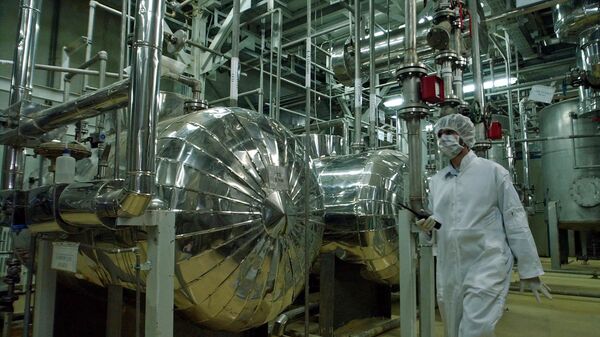"Today, we are concerned by the risk that the JCPOA further unravels under the strain of sanctions imposed by the United States and following Iran’s decision to no longer implement several of the central provisions of the agreement. We are extremely concerned by Iran’s decision to stockpile and enrich uranium in excess of authorised limits," the countries said in their joint statement.
The message also said that Germany, France and the United Kingdom had made a lot of efforts to help defuse tensions around the deal that could not continue existing without Iran fully respecting its commitments.
According to the statement, the three states are deeply concerned about the attacks in the Persian Gulf and in other places, as well as about the deterioration of the security situation in the region.
"Our countries have recently taken several diplomatic initiatives to contribute to de-escalation and dialogue, for which signs of goodwill are urgently needed, from all sides. While we continue to support the JCPOA, its continuation is contingent on Iran’s full compliance, and we strongly urge Iran to reverse its recent decisions in this regard," the statement read.
The Joint Comprehensive Plan of Action, commonly known as the Iran nuclear deal, was signed in July of 2015 between Iran, the five permanent members of the UN Security Council - Russia, France, China, UK, US plus Germany, and the European Union. Under the deal, Tehran agreed to eliminate its medium-enriched uranium stockpile, cut its stockpile of low-enriched uranium by 98%, and also reduce the number of its gas centrifuges. Apart from this, Iran promised not to build any new heavy-water facilities.

In May 2018 US President Donald Trump announced that his country was withdrawing from the deal, calling it 'defective to its core'. Although the European members of the deal warned Mr Trump against reimposing sanctions against Iran, the US president announced that economic sanctions that were waived since 2015 would come into effect again.


